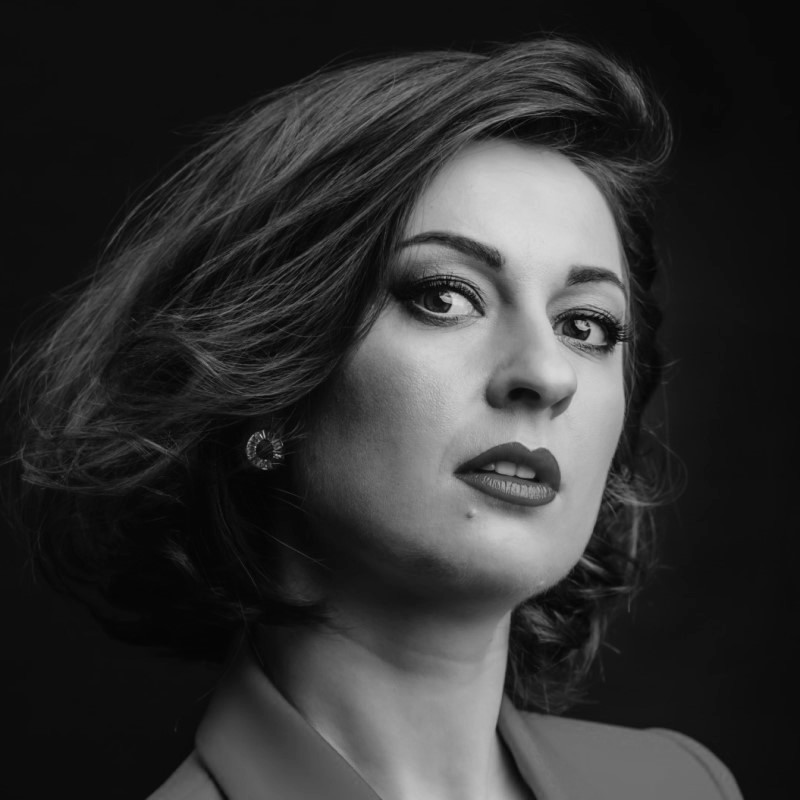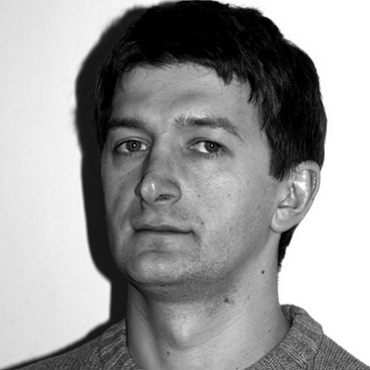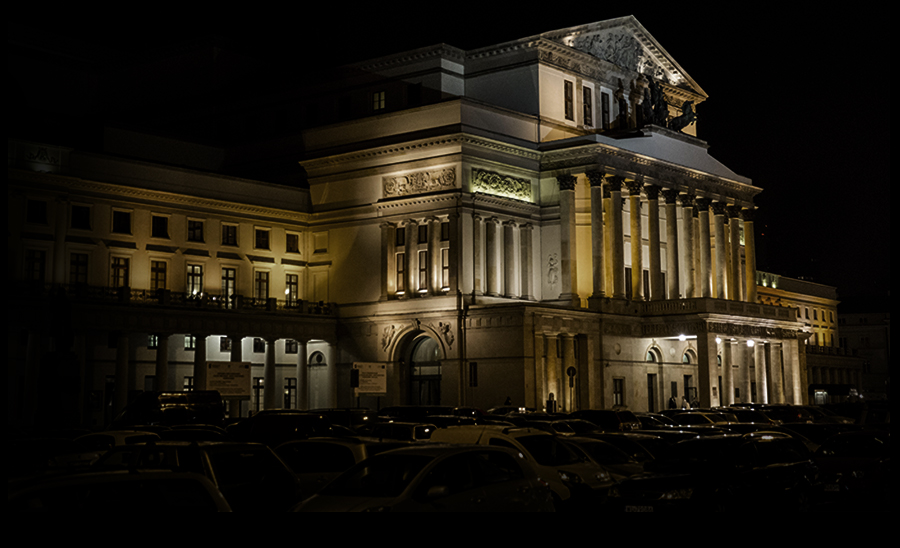Ghost of the Governor
concert version
Ludwik Grossman
PLEASE NOTE:
Due to the day of national mourning to be observed in Poland on 26 April 2025 in tribute to Pope Francis on the day of his funeral, the premiere of Ghost of the Governor scheduled for that day has been rescheduled to 3 June 2025, 7 p.m.
Learn more about ticket exchange and refunds
Tickets to the performance on 3 June go on sale on 6 May.
The decision to postpone the premiere was made due to the comedic nature of the opera and out of respect for the solemnity of the moment. We are grateful for your understanding.
Opera in three acts
Libretto: Władysław Anczyc
World Premiere: 25 October 1873
Sung in the original Polish
Now largely forgotten, Ludwik Grossman was an important 19th century composer and a man actively involved in the musical life of his community. One can see interesting analogies between Grossman’s biography and that of Stanisław Moniuszko. Similarly to his older colleague, Grossman pilgrimaged to Warsaw to study and was taught by August Freyer, to continue his education in Berlin. Both composers took an interest in serious as well as comic opera: the text of Grossman’s first work for the stage, Rybak z Palermo (A Fisherman from Palermo) was written by Jan Chęciński, the librettist of Moniuszko’s The Haunted Manor.
Ghost of the Governor was the composer’s second opera. In the wake of its triumphant world premiere in Warsaw, the work was successfully shown in Vienna, Kraków, Pest, St Petersburg, Lviv, Graz, Teplice, and Berlin. The opera owed its popularity less to the quality of the libretto – a rather convoluted intrigue conceived by Władysław Ludwik Anczyc – than to Grossman’s unpretentious score.
The story is set at a spa. Fékéte, the owner of a mountainous resort is trying to placate holidaymakers complaining about bad housing conditions. Their conversations is interrupted by the arrival of esteemed guests from Warsaw: a Councillor’s Wife, Helenka, and a Chairman. It is at this point that the love plot starts. The Councillor’s Wife, and Helenka’s aunt, tries to force the young woman to marry the Chairman. The niece objects the matrimony: she is in love with her former teacher, Leon, who also unexpectedly turns up at the resort. The Chairman is not thrilled by the idea either: there is another prospective bride he has his eyes on. Will there be a happy ending? To find out, you need to follow a serpentine story involving the resort owner, a physician he employs, Hungarian guests, soldiers led by a Czech commander, and not one, but two ghosts of a Governor haunting a nearby castle.
Grossman’s score has an undeniable charm to it. Ghost of the Governor can be characterised as an Italian opera buffa featuring elements of vaudeville and operetta, and some French influences (the motif of disguising oneself as a ghost appeared in François-Adriena Boieldieu’s immensely popular The White Lady). The score’s biggest merits are its lightness and diversified form. It features chorus scenes, arias, a cavatina, couplets, a ballade, ariosos and ensembles that aptly illustrate the lyrical, comical and dance-like aspects of the circumstances devised by Anczyc in the libretto. What is more, the composer had the original idea to weave into the music fabric of the opera elements of Polish, Czech and Hungarian national music (an instrumental czardasz and the mazurka Ptaszku luby, skowroneczku were the most appreciated fragments of the score).
This semi-staged performance led by Marta Kluczyńska, a conductor on a mission to rediscover forgotten operas, and fearless stage director Cezary Tomaszewski is a chance to see if the most famous Polish comic opera, Moniuszko’s The Haunted Manor – is not perhaps facing a new spectral competitor in the form of Grossman’s Ghost of the Governor.
Cast
Credits
Sponsors
-
Ministry of Culture and National Heritage of the Republic of Poland
-
Patrons of the Polish National Opera
Partners of the Opera Academy
-
Partners of the Polish National Opera
-
Media patrons





![[Translate to English:]](/fileadmin/import/media/img/SPEKTAKLE_KONCERTY/duch_wojewody/Duch_Wojewody_Pod_Spektakl_1920x1600.jpg)
![[Translate to English:] Plakat: Adam Żebrowski [Translate to English:] Plakat: Adam Żebrowski](/fileadmin/_processed_/c/5/csm_UTF-8Duch_Wojewody_B1_Nowa_Data_PREVKA_b40df140c2.jpg)
![[Translate to English:] Fot. Krzysztof Bieliński [Translate to English:] Fot. Krzysztof Bieliński](/fileadmin/_processed_/0/b/csm_BIEL2798_5d6e083776.jpg)
![[Translate to English:] Fot. Krzysztof Bieliński [Translate to English:] Fot. Krzysztof Bieliński](/fileadmin/_processed_/f/b/csm_BIEL2894_081e1b8519.jpg)
![[Translate to English:] Fot. Krzysztof Bieliński [Translate to English:] Fot. Krzysztof Bieliński](/fileadmin/_processed_/1/e/csm_BIEL2998_d5bec89d50.jpg)
![[Translate to English:] Fot. Krzysztof Bieliński [Translate to English:] Fot. Krzysztof Bieliński](/fileadmin/_processed_/7/2/csm_BIEL3245_cf02fe1ad4.jpg)
![[Translate to English:] Fot. Krzysztof Bieliński [Translate to English:] Fot. Krzysztof Bieliński](/fileadmin/_processed_/3/3/csm_BIEL3301_2a57653571.jpg)
![[Translate to English:] Fot. Krzysztof Bieliński [Translate to English:] Fot. Krzysztof Bieliński](/fileadmin/_processed_/b/c/csm_BIEL3557_b23aa24124.jpg)
![[Translate to English:] Fot. Krzysztof Bieliński [Translate to English:] Fot. Krzysztof Bieliński](/fileadmin/_processed_/e/f/csm_BIEL3868_ea305e3001.jpg)
![[Translate to English:] [Translate to English:]](/fileadmin/_processed_/d/3/csm_DUCH_WOJEWODY_-_teaser_a7cdee475f.png)
 Dariusz Machej
Dariusz Machej  Małgorzata Walewska
Małgorzata Walewska  Magdalena Stefaniak
Magdalena Stefaniak  Krzysztof Szumański
Krzysztof Szumański  Arnold Rutkowski
Arnold Rutkowski  Agnieszka Makowska
Agnieszka Makowska  Tomasz Rak
Tomasz Rak  Justyna Zanni
Justyna Zanni  Magdalena Cierzniewska
Magdalena Cierzniewska  Valerii Zadorozhnyi
Valerii Zadorozhnyi  Michał Piskor
Michał Piskor  Anna Skobel
Anna Skobel  Dariusz Kowalewski
Dariusz Kowalewski ![[Translate to English:]](/fileadmin/_processed_/b/4/csm_Marta_Kluczynska_fot_karpati_zarewicz_kwadrat_fde347331b.jpg) Marta Kluczyńska
Marta Kluczyńska  Marek Adamski
Marek Adamski  Tomasz Mierzwa
Tomasz Mierzwa  Tariel Todua
Tariel Todua  Łukasz Hermanowicz
Łukasz Hermanowicz ![[Translate to English:]](/fileadmin/import/media/img/ludzie/spiewacy/IZABELLA-KLOSINSKA370.jpg) Izabela Kłosińska
Izabela Kłosińska 









 ''
''